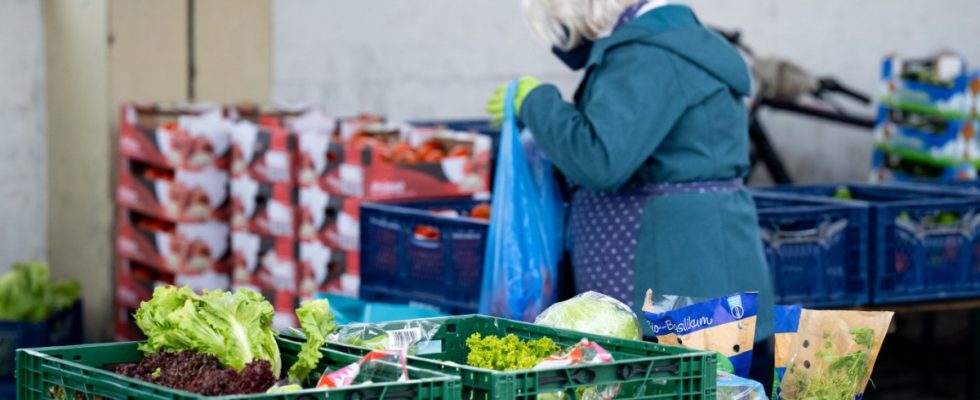The trend towards increasing poverty in Germany will not continue in 2022. However, the poverty rate only fell slightly by 0.1 points to 16.8 percent, as the general manager of the Joint Association, Ulrich Schneider, said on Tuesday in Berlin. “Poverty in Germany will remain at a very high level in 2022.” No newer data is available yet.
Schneider pointed out the long-term bad trend. 14.2 million people in Germany are affected by poverty. Compared to 2019 – before the corona pandemic and the recent period of high inflation – this is one million more. Compared to 2006, when the trend towards more poverty began, there are even 2.7 million more. As the report on poverty development also shows, families with large children, single parents, the unemployed and foreigners are particularly badly affected. According to Schneider, there is a negative record for poverty among children and young people at a rate of 21.8 percent.
The Ruhr area is the “number one poverty region”
Among single parents, 43.2 percent of children and young people are affected by poverty. The German Children’s Fund called for “genuine basic child security that is based on the actual needs of children and young people”. With basic child security, Family Minister Lisa Paus wants to bundle and in some cases expand several state benefits, from child benefit to citizen’s benefit to child allowance for low-income families. It is scheduled to be introduced in 2025. Bavaria has the lowest poverty rate among the federal states at 12.6 percent, followed by Baden-Württemberg and Brandenburg.
“Germany is drifting apart regionally,” said Schneider. Bremen performed worst with a rate of 29.1 percent. North Rhine-Westphalia is also far behind as the most populous federal state. The Ruhr area is the “number one poverty region,” said Schneider. Berlin improved from 15th to sixth place. Hamburg, on the other hand, fell from eighth to 14th place out of the 16 federal states.
Schneider described Finance Minister Christian Lindner’s demand that no additional social benefits be passed for three years as self-destructive and irresponsible. Instead, he called for climate money and an increase in the minimum wage to 15 euros. According to Schneider, the debt brake must also be reformed and additional spending must flow into the education and social sectors. Singles with a disposable income of less than 1,186 euros are considered poor.
For families, higher amounts are charged, but these are usually not far from the rates for social assistance. For couples with two children under 14, the poverty threshold is 2,490 euros. In a report also published on Tuesday, the Regulatory Control Council – an independent expert committee of the federal government – called for simpler structures to make it easier to get social benefits. The system is too bureaucratic, which is why benefits often do not reach those affected.

